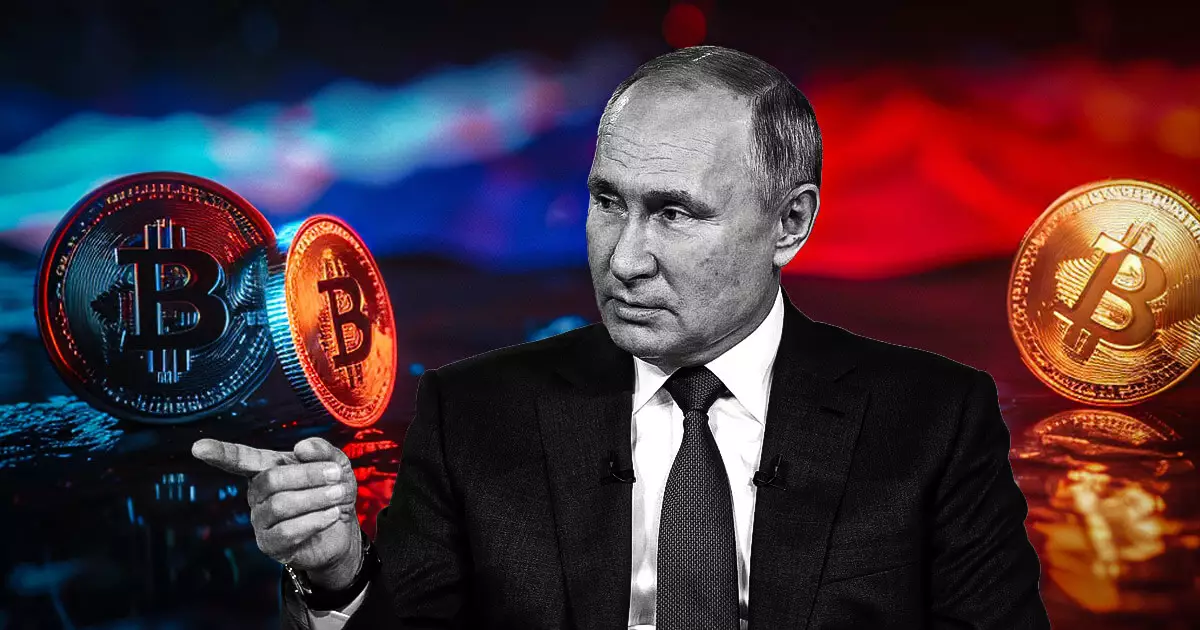In a pivotal moment for global finance, Russian President Vladimir Putin has emphatically asserted that Bitcoin and other cryptocurrencies are on an irreversible path to prominence. At the Investment Forum held in Moscow on December 4, Putin advocated for the increasing role of digital currencies in promoting economic efficiency and resilience. By positioning Bitcoin as a potential substitute for the US dollar, he highlighted a shift in the geopolitical landscape tied to monetary policy and the control exerted through traditional banking systems.
Putin’s remarks included a pointed critique of the United States and its manipulation of the dollar’s dominance to exert political influence. Specifically, he referenced the freezing of $300 billion in Russian assets by Western nations following the onset of the Ukraine conflict in 2022. This incident has raised significant concerns over reliance on a currency that can be weaponized. As a countermeasure, countries are increasingly exploring alternative currencies. Putin’s assertion that “nobody can ban Bitcoin” encapsulates a growing sentiment among nations wary of external financial pressures.
In line with Putin’s vision, Russia has taken definitive steps toward integrating cryptocurrencies into its financial framework. Recent legislation formally recognizes digital currencies as property, offering important legal clarity and protections for investors and users. This law also introduces tax relief for electronic transactions and exempts crypto mining and sales from value-added tax (VAT), incentivizing further adoption of blockchain technologies. Such measures signal Russia’s commitment not only to embrace financial innovation but also to shield its economy from geopolitical uncertainties.
The strategic use of cryptocurrency has proven to be particularly valuable during the Ukraine crisis, enabling citizens and businesses to conduct transactions despite sanctions and financial instability. The decentralized nature of digital currencies presents a compelling alternative for individuals seeking to maintain financial autonomy in times of contention. In this context, crypto serves as a bridge in regions impacted by traditional banking restrictions, demonstrating its role in fostering economic resilience.
Putin’s endorsement of digital currencies aligns with broader discussions at international platforms like the BRICS summit, where leaders highlighted the potential of cryptocurrencies to challenge the status quo of global finance. The emphasis on cross-border transactions without the intermediation of dominant powers like the US showcases a possible reconfiguration of global trade norms. Moreover, as regulatory landscapes in other countries evolve, particularly with an incoming US administration signaling a more crypto-friendly approach, the momentum toward a decentralized financial ecosystem may accelerate.
Putin’s advocacy for Bitcoin and digital currencies heralds a transformative shift in how nations engage with global financial systems. As geopolitical tensions prompt countries to fortify their financial sovereignty, the rise of cryptocurrencies may offer newfound pathways for innovation and cooperation. The future of money may very well lie in the ability to navigate these digital alternatives, thus redefining the nature of economic interactions on an international scale. As digital currencies gain traction as viable solutions, the financial world is poised for a significant transformation, driven by the very technologies that challenge traditional monetary policies.

